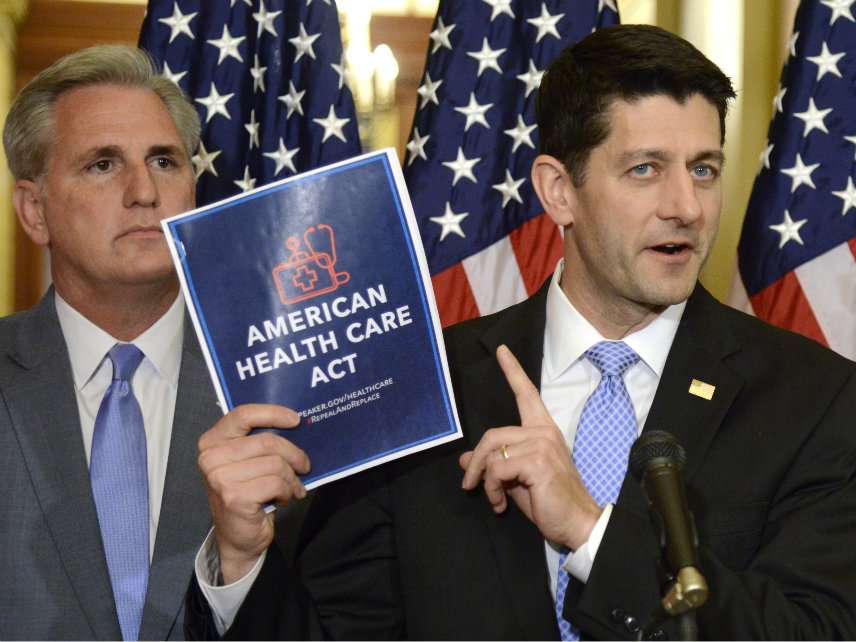Republicans Didn't Repeal Obamacare—But They Did Replace It
Almost by accident, the GOP has made Obamacare their own.

Republicans failed to repeal and replace Obamacare last year, yet somehow they stumbled into something that looks an awful lot like replacing it.
Or so I argue in today's New York Times:
Congressional Republicans spent the better part of 2017 trying and failing to repeal and replace Obamacare. They have now largely abandoned the project to pursue other goals. Yet in a sense they have succeeded anyway—just not in the manner they expected.
Consider for a moment what a successor to the Affordable Care Act might have looked like if Republicans had somehow managed to both repeal and replace the law last year.
Although the hastily written replacement bills that made their way through Congress were often vague and uneven, they tended to push the law in predictable directions: more federalism and individual choice, fewer mandates and more state flexibility, cheaper plans with less comprehensive coverage. They aimed to reduce some subsidies associated with the law while also, in some cases, providing funds to help states shore up Obamacare's unstable marketplaces. They pared back the law's Medicaid expansion and consistently took aim at its individual mandate.
None of those plans or quasi-plans passed. But roughly speaking, this is the form that the Affordable Care Act is now starting to take, thanks to a series of changes that Republicans have ushered into place since the failure of repeal.
Republicans, having failed to repeal Obamacare, have stumbled, almost accidentally, into replacing it. For better and for worse, and with little coherent vision at work, they are making Obamacare their own. And over time, they are likely to embrace it.
Read the whole thing, in which I discuss the risks and benefits to this approach, and why it suggests a shift in the political dynamics of health care that is both surprising and yet strangely natural.


Show Comments (7)